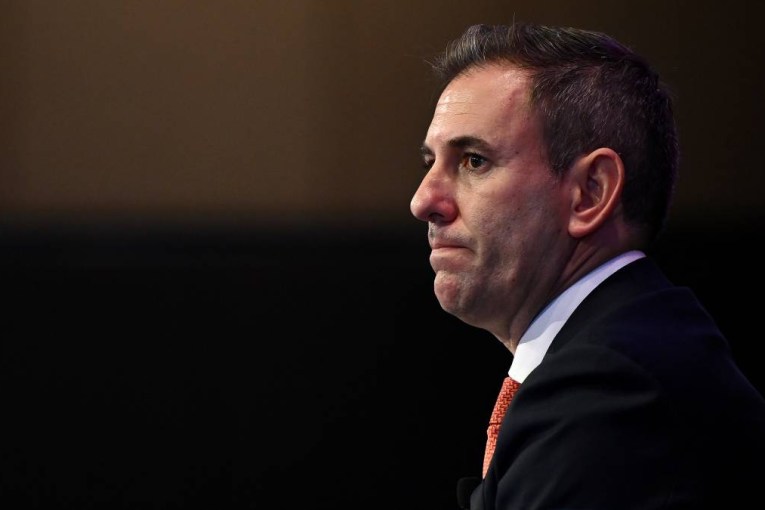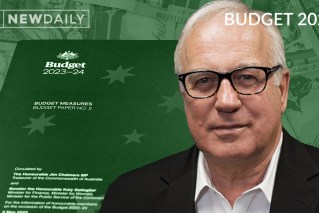Look closer: the hidden nasties in the 2016 budget

Getty
Don’t think the budget has let you off scot-free or even let you bag a modest tax cut. Unfortunately there are some nasties.
If you really want the good news, it lies in what wasn’t in the budget: no tax reform of note, no changes to HECS, and no crackdown on social security payments.
These, I suspect, will come later in a post-election mini-budget when the government gets more serious, either of its own volition or under pressure from ratings agencies like Moody’s, about cutting the deficit.
• Morrison’s super-budget fails to fly
• Optimist’s budget, pessimistic actions
• Five-minute guide to federal budget 2016
• ScoMo’s ho-hum recipe falls flat
The tax cut is limited to those who earn $80,000 or more a year, and is so modest the government broke with tradition by not producing a table of who gets what but at most it’s $6 a week.

Negative gearing isn’t going anywhere – in fact it looks a lot more appealing under the new budget. Photo: AAP
But the nasties are spread more generously, if that’s not the wrong word, to almost everybody.
The Medicare gap payment, for example, will grow over time because the government has frozen the benefits until 2020.
At least the Medicare levy free zone for low-income earners will be lifted another $439, and by $694 for seniors.
And do your online shopping before July 1 because GST will be levied for the first time on purchases of “low value goods” bought offshore, presumably items like books or clothing.
Smokers will pay 12.5 per cent more from September 1, and then that again for another three years.
The new childcare subsidies have been postponed a year because the family tax benefit changes didn’t pass muster in the Senate.
The super reforms are the most sweeping in years, ranging from what might be called, based on the standards of the genre, generous, to a clampdown that is backdated for the first time. And by nine years at that.
Taken together there’s some irony in the fact that they make negative gearing, which at one point was under threat, a more reasonable alternative to super.
Salary sacrificing will be limited to $25,000 a year after July 1 2017, down from $35,000 if you’re over 50.
So if you’re five years out from retirement the message is ‘step up this year’s contributions to the max’.
If you go over the cap, the extra is taxed at your marginal rate so there’s no risk.

Smokers will be paying 12.5 per cent more for cigarettes – every year. Photo: AAP
Worse, the great gift to those nearing retirement without enough super will be whittled away after July 1 2017.
This was the unlikely but truly rewarding strategy of taking money out of super and then putting it back in. That sets off a cascade of tax breaks that leaves you better off.
Better still, if you’ve turned 60 because there’s no tax on what you take out, and it removes the one on your fund’s earnings.
It’s the last chance for baby boomers to top up their super at the last minute.
But after July 1, with the lower salary sacrificing cap and one of the tax breaks removed, it will only be worthwhile for those who’ve reached 60.
On the bright side, anybody can contribute to super up to the age of 75 because the government will dump the work test.
For low-income earners on less than $37,000, the government will tip up to $500 into your super fund.
Or you can get the $500 the harder way by making a voluntary contribution to super. In this case you must earn under $35,454 ($36,021 in 1916-17).
And make a contribution to the super of your spouse (who can earn up to $37,000 instead of $10,800 previously) and you’ll get a tax offset of up to $540.

Those approaching retirement should up their super contributions now. Photo: AAP
The $180,000 voluntary (that is non-salary sacrificed) contribution annual cap was replaced from budget night by a $500,000 lifetime limit which includes contributions made as far back as 2007.
At least from next year you’ll be able to carry over unused caps from previous years if you have no more than $500,000 in your super.
And at last the government will end the tax discrimination against deferred annuities, improving no end the investment options for retirees.
These are annuities bought in advance but kick in from a certain age with a guaranteed income.
As was widely touted, those on $250,000 or more will pay 30 per cent instead of the 15 per cent everybody else pays on salary sacrificed super.
The real shock is the effective $1.6 million cap on tax free retirement funds which will boost the use of negative gearing by the well-to-do.








